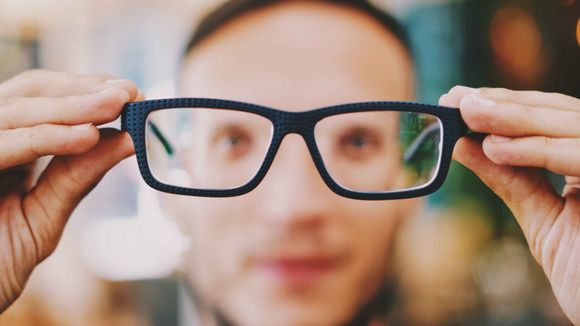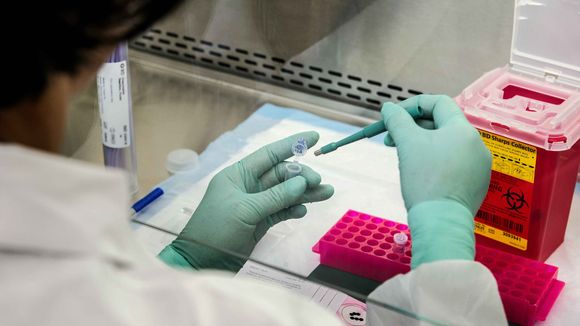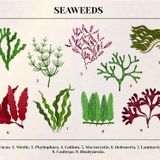Overview of zinc deficiency
Zinc is an essential mineral that is present in many types of foods. However, it is possible that a person is deficient in this important mineral. Zinc deficiency can also cause other health consequences, including decreased immune function, diarrhea, and other manifestations. [ref. 1]
As it became clear, zinc contributes to a number of different processes in the body. It is considered an antioxidant that serves to protect cells from oxidative damage. It is also involved in growth and development during pregnancy, childhood and adolescence.
Zinc is extremely important for the immune system and wound healing. Zinc deficiency can lead to reduced function or overactivity of the immune system.
Symptoms of zinc deficiency do not begin until levels are too low for several months. Insufficient amounts of the mineral in your diet, intake of certain foods, conditions of malabsorption (such as Crohn's disease or irritable colon) or liver disease are some of the causes of zinc deficiency.
What are the symptoms of zinc deficiency?
Low levels of zinc can cause a variety of problems. They may not be noticed immediately or attributed to other conditions. [Ref. 2] In adults, there are several different symptoms that may point to zinc deficiency, including:
- Loss of smell and taste - one of the most obvious symptoms. The body uses zinc to exchange signals between the brain and taste buds. With its deficiency, this process is disrupted;
- White spots on the nails - these spots are formed due to excessive consumption of refined carbohydrates and depletion of zinc in the body. It is necessary for the production of keratin, the main building material of nails and hair;
- Depression - Zinc depletion occurs in many people with depression. Zinc itself is needed to build neurotransmitters such as dopamine;
- Hair loss - zinc is necessary for the production of sebum and its regulation, as well as for the growth of new hair;
- Frequent infections - Zinc contributes to the normal function of your immune system by, among other things, regulating how the thymus gland produces T cells. These are a particular type of white blood cells secreted by the thymus gland, which play an important role in the body's fight against infections and viruses;
- Weakened vision - Zinc is needed to transport vitamin A from the liver to the eyes. It also has a role in building visual pigments in the eyes that help us see colors clearly;

In men, there is also erectile dysfunction, as well as a natural drop in testosterone levels as we age, which is also directly related to zinc levels.
In children and teens, zinc deficiency can cause problems with normal growth and development. Therefore, if optimal amounts of zinc are lacking for a long time, its deficiency can cause:
- Stunted growth and development
- Delayed onset of puberty
- Learning and remembering difficulties
Causes of zinc deficiency
Zinc deficiency can be caused by a lack of enough zinc in the diet in the first place. Even if you consume enough zinc, some risk factors can reduce your zinc levels, including various diseases. In addition, certain drugs and other nutrients can interfere with zinc absorption, causing a deficiency. [ref. 3]
Medical conditions that can lead to zinc deficiency include:
- Intestinal conditions such as Crohn's disease and ulcerative colitis
- Alcoholism
- Sickle cell disease
- Diabetes
- Cancer
- Cystic fibrosis
- Diseases of the kidneys
How much zinc do I need per day?
Recommendations for men are for 9.5 milligrams of zinc every day, and women need 7 milligrams. The good thing is that most of us should be able to get zinc through our diet. Zinc is found in many different foods, including red meat, seafood, dairy products, pulses, and grains. Of course, if you are vegetarian or 100% vegan, then many of these foods will not be present in your diet and have a higher risk of zinc deficiency.
Food sources of zinc
The best source of zinc is oysters, but it is also found in optimal amounts in red meat and homemade poultry. Other good sources are beans, nuts, crabs, lobsters, whole grains, breakfast cereals and dairy products.
One serving of 100 grams of raw minced beef contains 4.79 mg. zinc, which is 43.5% of the daily value (DV) for men and 59.9% of the DV for women. Oysters contain particularly large amounts, with six medium-sized oysters providing 33 mg, or 300% of DV for men and 412.5% of DV for women. Many legumes like chickpeas, lentils, and beans contain significant amounts of zinc, so even if you're vegetarian or vegan, there are still sources to provide you with zinc.
Diagnosis of zinc deficiency

Because the symptoms of zinc deficiency are non-specific, it can be difficult to diagnose it. Many of the symptoms associated with zinc deficiency are also symptoms of other nutritional deficiencies and medical problems, which complicates diagnosis. For example, infections, anemia, and thyroid disease often cause symptoms similar to those of zinc deficiency.
After a detailed examination of your medical history and a doctor's examination, the necessary diagnostic tests are appointed. It usually starts with tests such as a complete blood count (CBC). This test can provide information about whether you have an infection or anemia. The infection often causes high white blood cells (WBC), while anemia can cause a change in the number or size of red blood cells (RBC).
Your doctor may recommend checking your electrolyte levels, such as calcium, potassium, sodium, and chloride. These values may reflect nutritional deficiencies and medical diseases.
Other tests for zinc deficiency include a urine test and an analysis of a strand of your hair to measure your zinc content.







